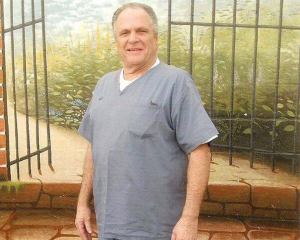What an election for drug reform!
Oregon voters deliver a pair of drug reform firsts.
New Jersey becomes the 12th state to legalize marijuana.
Arizona becomes the second state to legalize weed tonight.
It wasn't just blue states that legalized marijuana on Election Day.
California just said no to rolling back earlier sentencing reforms.
Add two more medical marijuana states.
Voters in the nation's capital have overwhelmingly approved a lowest priority initiative for natural psychedelics.
Our law enforcement rogues' gallery this week yields an embarrassment of riches.
New Jersey's vote to legalize marijuana is turning up the heat on nearby governors, Pennsylvania GOP lawmakers move to let employers and insurers off the hook for paying for medical marijuana under workers' compensation claims, and more.
State elected officials react in different ways to marijuana legalization votes, a major settlement looms over prescription opioids, and more.
Support for marijuana legalization hits an all-time high in the latest Gallup poll, New Jersey lawmakers take up an interim marijuana decriminalization bill, and more.
No more pot prosecutions in Phoenix, a new marijuana legalization bill in Texas, a push for psychedelic reform in San Francisco, and more.
The odor of pot will no longer be the sole grounds for police searches in Virginia after March 1, a bid to legalize marijuana in Colombia has failed, but another remains alive, and more.
New Jersey politicians are squabbling -- again -- over how to tax legal marijuana, Tucson joins Phoenix in walking away from marijuana prosecutions, the Mexican Senate moves toward a vote on marijuana legalization, and more.
State legal marijuana regulators form an association, a New Jersey marijuana decrim bill is amended to include magic mushrooms and wins a committee vote, and more.
The day after Election Day, national election results remained muddy, but one thing was crystal clear: the American public is ready for drug reform. Drug reform initiatives went nine for nine on Tuesday. With successful marijuana legalization initiatives in two of the reddest of the red states to a groundbreaking drug decriminalization initiative and the first voter-approved psychedelic liberalization initiatives, we can see the erosion of drug prohibition happening right before our eyes.
Perhaps the most striking victory of all is Oregon's
Measure 110, which will decriminalize the possession of personal use amounts of all drugs and use revenues from legal marijuana sales to help fund expanded drug treatment. People caught with drugs can either pay a $100 fine or complete a health assessment. Distribution of such drugs would remain criminalized.
The notion of not arresting people just for having or using "hard" drugs is a radical one in the United States, but increasingly common in the rest of the world. At least 29 countries have embraced some form of drug decriminalization, and even the US has seen marijuana possession decriminalized in a number of states. But not cocaine or heroin or meth or LSD. Or not until Tuesday, when more than 58% of Oregon voters said let's try something new.
"Today's victory is a landmark declaration that the time has come to stop criminalizing people for drug use," said Kassandra Frederique, executive director of the Drug Policy Alliance, in an email message on Tuesday evening. "Measure 110 is arguably the biggest blow to the war on drugs to date. It shifts the focus where it belongs -- on people and public health -- and removes one of the most common justifications for law enforcement to harass, arrest, prosecute, incarcerate, and deport people. As we saw with the domino effect of marijuana legalization, we expect this victory to inspire other states to enact their own drug decriminalization policies that prioritize health over punishment."
Drug Policy Alliance and its lobbying arm, Drug Policy Action Network, spearheaded the Measure 110 campaign, just as they backed the state's successful 2014 marijuana legalization initiative.
And speaking of marijuana legalization, the weed swept to victory everywhere it was on the ballot -- in Arizona and New Jersey but also in deeply conservative Montana and South Dakota. That means the number of states that have freed the weed jumped from 11 to 15.
"From the Badlands to the Jersey Shore, and from the Grand Canyon to Big Sky Country, Americans across the country have embraced the idea that marijuana legalization is the policy decision that best serves the interests of public health, public safety, and, most importantly, justice," Matthew Schweich, deputy director of the Marijuana Policy Project and one of the leaders of the Montana and South Dakota campaigns, said in a Wednesday email.
In Arizona, the marijuana legalization initiative, Proposition 207: The Smart & Safe Arizona Act, cruised to victory Tuesday night with 60 percent of the vote. It will legalize marijuana for people 21 and over and allow for home grows of up to six plants. The state will regulate a legal marijuana market with a 16% tax on retail sales.
"Arizona voters have spoken, and they are ready for marijuana legalization," said Steve Hawkins, executive director of the Marijuana Policy Project, in a Tuesday night email. "According to the latest Gallup poll, 66% of Americans support marijuana legalization, and this victory further reinforces that stance," Hawkins added. "We are poised for major marijuana reform federally. Regardless of who controls the White House, the House, or the Senate, Americans are ready for legal marijuana."
In Montana, Constitutional Initiative 118 and Initiative 190 won with 58 percent and 57 percent of the vote, respectively. I-190 is a statutory initiative that would legalize, regulate, and tax marijuana for adults 21 and over. CI-118 is a constitutional initiative that would allow I-190 to set the minimum age at 21, as is the age for alcohol consumption in the state.
In New Jersey, Public Question 1 is a legislatively referred constitutional amendment that legalizes marijuana for people 21 and over and allows for system of regulated to the state sales tax of 6.625%. It leaves questions such as possession limits and whether to allow home grows up the legislature and state regulators. It won with a resounding 67 percent of the vote.
In South Dakota, Constitutional Amendment A won 54 percent of the vote in a state where more than 60 percent voted for Donald Trump. The measure will legalize the possession of up to an ounce of marijuana by people 21 and over and allow for the home cultivation of up to three plants in jurisdictions with no retail marijuana outlets. It also envisions a legal marijuana market with a sales tax of 15% and requires the state legislature to pass laws providing for medical marijuana and hemp by next spring.
"This historic set of victories will place even greater pressure on Congress to address the glaring and untenable conflicts between state and federal laws when it comes to cannabis legalization," said Hawkins. "With the passage of these initiatives, one-third of the population now lives in jurisdictions that have legalized cannabis for adult use, and 70% of all states have embraced cannabis for medical use."
And speaking of cannabis for medical use, two deep red states, Mississippi and South Dakota both approved medical marijuana initiatives on Tuesday night. Mississippi's Initiative 65 overcome a watered down legislative alternative to win with 74 percent of the vote, while South Dakota's Measure 26 won with 70 percent. That brings the number of states with access to medical marijuana to 38.
And then, there's the psychedelic front. On the East Coast, Washington, DC, voters approved Initiative 81, the Entheogenic Plant and Fungi Policy Act of 2020, with 74 percent of the vote. The measure will have police treat natural plant medicines (entheogens) as their lowest law enforcement priority. The measure also asks the city's top prosecutor and its US Attorney to not prosecute such cases.
"Initiative 81's success was driven by grassroots support from DC voters. We are thrilled that DC residents voted to support common sense drug policy reforms that help end part of the war on drugs while ensuring that DC residents benefiting from plant and fungi medicines are not police targets," Decriminalize Nature DC Chairwoman Melissa Lavasani said in a press release.
And on the West Coast, Oregon voters didn't just decriminalize drugs, they also passed Measure 109, the Psilocybin Services Act, with 56 percent of the vote. It will create a program to allow the administration of psilocybin products, such as magic mushrooms, to adults 21 and over for therapeutic purposes. People will be allowed to buy, possess, and consume psilocybin at a psilocybin services center, but only after undergoing a preparation session and under the supervision of a psilocybin service facilitator.
Altogether, a stellar night for drug reform at the ballot box. Marijuana legalization continues its inexorable advance across the land, and new fronts are now open on psychedelics and broader drug decriminalization. A few more bricks fell from the wall of drug prohibition this Election Day.
back to top
According to the Oregon secretary of state's office, as of 9:00pm Pacific Time, both of the state's pioneering drug reform initiatives are cruising to victory. The drug decriminalizing Measure 110 was winning with 59% of the vote, and the therapeutic psilocbyin initiative, Measure 109, was winning with 56% of the vote.

Oregon's Mt. Hood (David Mark/Pixabay)
Measure 110 would decriminalize the possession of personal use amounts of all drugs and use revenues from legal marijuana sales to help fund expanded drug treatment. People caught with drugs could either pay a $100 fine or complete a health assessment. Distribution of such drugs would remain criminalized.
Measure 109, the Psilocybin Services Act, would create a program to allow the administration of psilocybin products, such as magic mushrooms, to adults 21 and over for therapeutic purposes. People would be allowed to buy, possess, and consume psilocybin at a psilocybin services center, but only after undergoing a preparation session and under the supervision of a psilocybin service facilitator.
Measure 110 was spearheaded by Drug Policy Action, the advocacy and political arm of Drug Policy Alliance, which also backed prior drug policy wins in Oregon, including the YES on 91 campaign in 2014 that legalized marijuana.
"Today's victory is a landmark declaration that the time has come to stop criminalizing people for drug use,"said Kassandra Frederique, executive director of the Drug Policy Alliance. "Measure 110 is arguably the biggest blow to the war on drugs to date. It shifts the focus where it belongs -- on people and public health -- and removes one of the most common justifications for law enforcement to harass, arrest, prosecute, incarcerate, and deport people. As we saw with the domino effect of marijuana legalization, we expect this victory to inspire other states to enact their own drug decriminalization policies that prioritize health over punishment."
In addition to decriminalizing possession of all drugs for personal use, Measure 110 will greatly expand access to evidence-informed drug treatment, peer support, housing, and harm reduction services, without raising taxes. Services will be funded through excess marijuana tax revenue (over $45 million) and savings from no longer arresting, incarcerating, and prosecuting people for drug possession. Based on current projections, the excess marijuana tax revenue alone should result in over $100 million in funding for services in the first year and up to $129 million by 2027.
back to top
New Jersey voters have approved marijuana legalization. Although only 35% of the vote was in as of 10:00pm Eastern Time, the marijuana legalization initiative was cruising to victory with 66.2% approval, and NBC News has called it.
Public Question 1 is a legislatively referred constitutional amendment that would legalize marijuana for people 21 and over and allow for system of regulated sales subject to the state sales tax of 6.625%. It leaves questions such as possession limits and whether to allow home grows up the legislature and state regulators.
New Jersey becomes the 12th state to legalize marijuana. It's also on the ballot tonight in Arizona, Montana, and South Dakota, so stay tuned; we will be posting those results as they come in.
back to top
The state's marijuana legalization initiative, Proposition 207: The Smart & Safe Arizona Act, is crusing to victory Tuesday night. With nearly 73% of the vote counted as of 8:30pm Pacific Time, NBC News has called the election with the measure currently winning 60% of the vote.
The initative will legalize marijuana for people 21 and over and allow for home grows of up to six plants. The state will regulate a legal marijuana market with a 16% tax on retail sales.
"Arizona voters have spoken, and they are ready for marijuana legalization," said Steve Hawkins, executive director of the Marijuana Policy Project, which was founded in 1995 and has played a central role in eight state-level adult-use legalization victories over the past eight years.
"According to the latest Gallup poll, 66% of Americans support marijuana legalization, and this victory further reinforces that stance." Hawkins added. "We are poised for major marijuana reform federally. Regardless of who controls the White House, the House, or the Senate, Americans are ready for legal marijuana."
This election night has already seen New Jersey become the 12th state to legalize marijuana. Arizona makes 13. That number could rise to 15 before the night is over as we await results from pot legalization initiatives in Montana and South Dakota.
back to top
It wasn't just blue Joe Biden-supporting states like Arizona and New Jersey that freed the weed on Election Day. Two of the reddest of the red states also rejected Reefer Madness.
In Montana,
Constitutional Initiative 118 and
Initiative 190 won with
58 percent and 57 percent of the vote, respectively. I-190 is a statutory initiative that would legalize, regulate, and tax marijuana for adults 21 and over. CI-118 is a constitutional initiative that would allow I-190 to set the minimum age at 21, as is the age for alcohol consumption in the state.
In South Dakota, Constitutional Amendment A won 54 percent of the vote in a state where more than 60 percent voted for Donald Trump. The measure will legalize the possession of up to an ounce of marijuana by people 21 and over and allow for the home cultivation of up to three plants in jurisdictions with no retail marijuana outlets. It also envisions a legal marijuana market with a sales tax of 15% and requires the state legislature to pass laws providing for medical marijuana and hemp by next spring.
The two states become the 14th and 15th to legalize marijuana.
back to top
A ballot measure that would roll back changes to California's sentencing laws, changing certain misdemeanor crimes, including some drug offenses to felony crimes, was roundly defeated at the ballot box on Election Day.
Proposition 20 which "Restricts Parole for Non-Violent Offenders. Authorizes Felony Sentences for Certain Offenses Currently Treated Only as Misdemeanors," went down 68% to 32%,
according to the Associated Press.It was an effort to undo sentencing reforms by both the legislature (AB 109 in 2011) and two voter-passed initiatives, Proposition 47 (2014), and Proposition 57 (2016). All of those measures were designed to reduce the state's prison population; this one would have increased it at a cost of tens of millions of dollars a year.
back to top
Voters in two red states, Mississippi and South Dakota, have approved initiatives allowing for medical marijuana.
>In Mississippi,
Initiative 65 won
an easy electoral two-step, with 68% of voters approving medical marijuana and then 74% approving Initiative 65 over a watered down legislative substitute.
"It is great to see that the tides of change are continuing to flow across the country and now they have come to Mississippi," said Steve Hawkins, executive director of the Marijuana Policy Project, which was founded in 1995 and has played a central role in eight state-level legalization victories over the past eight years. "As we saw in Utah in 2018, and as we see in Mississippi this year, medical marijuana can pass in any state in the country."
In South Dakota, Measure 26 was winning with 69% of the vote late Tuesday night. It would allow patients with debilitating medical conditions to possess up to three ounces of marijuana and grow up to three plants. The initiative also establishes a state medical marijuana program with dispensaries, licensed cultivators, and testing operations.
They become the 36th and 37th states to legalize medical marijuana.
back to top
Voters in the nation's capital have overwhelmingly approved an initiative to effectively decriminalize the cultivation, use, possession, and distribution of natural psychedelics, such as ayahuasca, magic mushrooms, and peyote. According to unofficial election results, the measure was winning with 76% of the vote.
Initiative 81, the Entheogenic Plant and Fungi Policy Act of 2020, would have police treat natural plant medicines (entheogens) as their lowest law enforcement priority. The measure also asks the city's top prosecutor and its US Attorney to not prosecute such cases.
"Initiative 81's success was driven by grassroots support from DC voters. We are thrilled that DC residents voted to support common sense drug policy reforms that help end part of the war on drugs while ensuring that DC residents benefiting from plant and fungi medicines are not police targets," Decriminalize Nature DC Chairwoman Melissa Lavasani said in a press release.
back to top
Our law enforcement rogues' gallery this week yields an embarrassment of riches. Let's get to it:
In Baltimore,
three guards at the city's federal jail were arrested October 21 after a grand jury indicted them and four inmates in an ongoing scheme to smuggle drugs, cell phones, and other contraband into the jail. The arrested guards are Andre Davis, 35, Darren Parker, 45, and Talaia Youngblood, 35. The exact charges they face were not specified.
In Franklin, Indiana, a Johnson County probation officer was arrested October 21 for having sex with a woman probationer he supervised and tampering with her drug test. Community Corrections Officer Evan Hill, 50, admitted to the sexual relationship, but denied having actual intercourse and denied dumping her positive drug test sample and recording it as negative. He is charged with felony official misconduct and felony sexual misconduct.
In Clinton, Louisiana, a Dixon Correctional Institute prison guard was arrested October 27 for trying to smuggle drugs to inmates at the prison. Jamenisha Huff got caught placing sheets of paper treated with synthetic cannabinoids in a waste basket in the visitors' bathroom. She is charged with one count each of introduction of contraband into a penal facility and malfeasance in office.
In Miami, a Miami-Dade police officer was arrested October 30 for allegedly protecting shipments of cocaine through the city. Officer Rod Flowers, the son of Bal Harbor Police Chief Raleigh Flowers, was taken into custody by DEA agents. It's not clear what the exact charges are.
In Louisville, a Louisville Metro Police officer was arrested last Friday for seizing pot from people and then giving it to a woman "he had a relationship with." Officer Tyler Gelnett repeatedly seized marijuana and gave it to the woman from December 2019 through April 30, 2020. He faces one count of official conduct and one count of marijuana trafficking. He isalso facing a pending lawsuit from a woman who claims Gelnett groped her during a traffic stop.
In Minneapolis, a former Minneapolis police officer was arrested last Friday on charges that he used his position as a street cop to steal meth, heroin, oxycodone, and other drugs for his own personal use. Ty Raymond Jindra, 28, stole drugs by means of "deception, extortion, and conducting unconstitutional searches and seizures," according to a grand jury indictment. He would seize drugs during searches while his partner wasn't looking and then fail to turn them in and is also accused of skimming from bags of drugs turned in by a concerned citizen before logging them into evidence. He faces six counts of acquiring controlled substances by deception, two counts of extortion under color of official right and three counts of deprivation of rights under color of law. He left the department on October 23.
In Jacksonville, a Jacksonville Sheriff's Office jail guard was arrested Sunday for smuggling drugs into the jail. Hunter Jean, 24, went down after a jail inmate reported him to authorities, and he was caught coming to work with a package of marijuana and methamphetamine. He is charged with three felonies: delivery of methamphetamine, delivery of marijuana and introduction of contraband into a detention facility. He resigned his position upon being arrested.
In New York City, an NYPD officer was arrested Monday on charges he played a major role in a drug ring that imported hundreds of kilograms of cocaine into the city from January 2016 until last month. Officer Amaury Abreu, 34, led a group that sent couriers from the Dominican Republic to JFK Airport, where a crooked Customs and Border Patrol officer would escort the shipments through customs. Serving in the NYPD for nine years, Abreu has been suspended without pay, according to a department spokesperson.
In Greensburg, Pennsylvania, the Seward Police Chief was arrested Tuesday for coercing sex from a woman who was facing a marijuana paraphernalia charge. Chief Robert Baldwin, 49, offered to "work out" her situation for her if she would have sex with him. The woman said didn't want to have sex with Baldwin but feared arrest if she didn't. He is charged with obstruction of justice, hindering apprehension and official oppression.
In Houston, a former Harris County deputy constable pleaded guilty October 24 to transporting hundreds of thousands of dollars in drug proceeds on multiple occasions and transporting drugs on at least one occasion. Betty Molina admitted being paid $30,000 for her efforts. She was initially charged with conspiracy, possession, and money laundering, but ended up pleading guilty to one count of conspiracy to possess with intent to distribute heroin. She's looking at a mandatory minimum 10 years in federal prison.
In Baltimore, a former Baltimore police officer pleaded guilty last Friday in a case where he and two other officers were accused of not turning in a portion of a cocaine seizure and instead selling three kilograms of cocaine to a confidential informant who was a drug dealer. Ivo Louvado, 47, admitted receiving $10,000 as his share of the proceeds. He copped to one count of making false statements to federal agents. He's looking at a maximum five-year federal prison sentence.
In Houston, a former Border Patrol agent was sentenced last Tuesday to nearly 16 years in federal prison for his role in a cocaine distribution scheme. Daniel Polanco, 39, was involved in the distribution of 15 kilograms of cocaine in 2013, and the investigation into that plot eventually led to the arrest and prosecution of 20 people, including six law enforcement officers. He was convicted of cocaine distribution and making false statements.
In Macon, Georgia, a former Valdosta State Prison guard was sentenced last Friday to 46 months in federal prison after being caught with methamphetamine, marijuana, and cell phone packed in Ziploc bags in her vehicle as she arrived for work. Melissa Crawford, 53, went down after prison investigators got word she would be smuggling drugs into the prison the following day and then searched her vehicle. She then admitted smuggling drugs and other contraband on at least four occasions. It's not clear what exact charges she pled to.
back to top
New Jersey's vote to legalize marijuana is turning up the heat on nearby governors, Pennsylvania GOP lawmakers move to let employers and insurers off the hook for paying for medical marijuana under workers' compensation claims, and more.

New York Gov. Andrew Cuomo says "the time is ripe" for marijuana legalization in the Empire State. (Creative Commons)
Connecticut Governor Says Legalization Being Looked at This Year. Prodded by New Jersey's vote Tuesday legalizing marijuana, Gov. Ned Lamont (D) said Wednesday his state will likely try again to legalize it this year. "We're much stronger when we work on a regional basis," Lamont said during a Wednesday news conference about marijuana, adding that one of the lessons learned from the coronavirus pandemic is Connecticut is stronger when it works with its neighbors. "My thinking is sort of similar when it comes to marijuana... I think that we do something, we do it on a regional basis," he said.
New York Governor Says Time is Ripe for Marijuana Legalization. Lawmakers in Albany will approve marijuana legalization "this year" because "the pressure is on" after neighboring New Jersey legalized it on Tuesday, Gov. Andrew Cuomo (D) said Thursday. It was unclear if Cuomo was contemplating a special session before year's end or referring to 2021 legislative session. "I think this year it is ripe because the state is going to be desperate for funding" amid the coronavirus crisis. Legalization represents a potential source of revenue, he argued. "I've supported it for years. The question becomes about the money -- about the distribution and the power. What does it always come back down to? Money and power. Who gets the licenses and who gets the money. I think we get there this year."
Medical Marijuana
Pennsylvania Lawmakers File Bill to Let Employers Avoid Paying Workers' Compensation for Medical Marijuana. A group of Republican lawmakers last Friday filed SB 1360, which would allow employers and insurers to not be required to cover or reimburse for medical marijuana for injured workers. The bill would also clarify that an employer can fire a worker who is intoxicated on the job and not hire someone who fails a marijuana drug test. The bill has been referred to the Health and Human Services Committee.
back to top
State elected officials react in different ways to marijuana legalization votes, a major settlement looms over prescription opioids, and more.

An opioid manufacturer and three distributors are nearly a major settlement on thousands of opioid lawsuits. (Pixabay)
New Jersey Governor Appoints Top Marijuana Regulator Following Legalization Vote. Moving quickly to implement the will of the voters, Gov. Phil Murphy (D) has named the people who will administer the implementation of legalization as the Cannabis Regulatory Commission. He named former policy counsel to the state ACLU and current administration staffer Dianna Houenou to head the commission. She is emphasizing social equity. "Cannabis legalization and regulation is just one illustration of much larger work that is needed to reform our drug policies wholesale. We really are looking to make sure that equity is built into a regulated structure at the onset," she said. The legislature is also quickly swinging into gear.
South Dakota Republican Legislators Look for Ways to Undo the Will of the Voters. After the resounding victory of the state's medical marijuana initiative and the clear victory of its legalization initiative, the state's Republican governor and legislature are now pondering how to try to undo what the voters chose. Gov. Kristi Noem (R) said voters made "the wrong choice" in approving the initiatives. The legislature is limited in its ability to mess with the legalization initiative because it was a constitutional amendment, but the medical marijuana initiative is a statutory one, which the legislature can nullify, repeal, or gut such measures, as it did with a voter-approve campaign finance reform initiative in 2016. And lawmakers could vote to propose a future amendment to nullify marijuana legalization. Stay tuned.
Heroin and Prescription Opioids
$26 Billion Settlement Offer in Opioid Lawsuits Gains Wide Support. A large pharmaceutical drug maker and three distributors are nearing a $26 billion deal with state and local governments to settle thousands of lawsuits over the companies' role in the opioid epidemic that began in the late 1990s. The four companies are McKesson, Cardinal Health, AmerisourceBergen and Johnson & Johnson. A settlement would mean those companies would face no risk of further lawsuits from those state and local governments. The bulk of the money would go to help pay for treatment and prevention programs in areas hard-hit by the epidemic.
International
Final Results Confirm New Zealand Marijuana Legalization Referendum Failed. Vote totals tightened after initial results had the country's marijuana legalization referendum failing with only 46% of the vote, but not enough to overcome the vote deficit. The final tally ended with the referendum getting 48%, 51% opposed.
back to top
Support for marijuana legalization hits an all-time high in the latest Gallup poll, New Jersey lawmakers take up an interim marijuana decriminalization bill, and more.
Marijuana PolicyGallup Poll: Support for Legal Marijuana Inches Up to New High of 68%. Support for marijuana legalization is at an all-time of 68% in the latest Gallup poll, which was released Monday. When Gallup first measured attitudes toward legalization back in 1969, only 12% supported it, and support didn't exceed 30% until 2000, but has climbed steadily upward since then. Marijuana has majority support among every age, educational, and income bracket. Legalization is favored by 83% of Democrats, 72% of independents, and 48% of Republicans.
Montana Marijuana Foes Try Lawsuit to Overturn Legalization Initiative Victory. Just one day after state voters decisively approved a marijuana legalization initiative, opponents filed a lawsuit seeking to overturn the results. They argue that the initiative is unconstitutional because it appropriates tax revenues. A similar pre-election lawsuit was rejected by the state Supreme Court.
New Jersey Bill Would Decriminalize Up to Six Ounces of Marijuana, Sales of Up to an Ounce. With an eye on the interim period before voter-approved marijuana legalization goes into effect, lawmakers took up a bill (S2535) Monday that has been amended to decriminalize possession of up to six ounces of marijuana and distribution of one ounce.
Des Moines Task Force Recommends Marijuana Lowest Law Enforcement Priority Policy. A community force looking at marijuana policy is recommending making pot possession the lowest law enforcement priority. The recommendation presented the recommendation during a city council work session Monday.
back to top
No more pot prosecutions in Phoenix, a new marijuana legalization bill in Texas, a push for psychedelic reform in San Francisco, and more.

The Garden State is moving full speed ahead on implementing marijuana legalization. (Creative Commons)
House to Vote on Federal Marijuana Legalization Next Month. House Majority Leader Steny Hoyer (D-MD) said Monday that the House would vote on the Marijuana Opportunity, Reinvestment and Expungement (MORE) Act (HB 3884) next month. It had been scheduled for a September vote, but was delayed after moderate Democrats worried that advancing a marijuana vote ahead of a renewed coronavirus package would hurt their election chances. Instead, several of those moderates lost on Election Day, while marijuana legalization went four for four.
Arizona's Most Populous County Gives Up on Marijuana Prosecutions. The Maricopa County (Phoenix) Attorney's Office announced Monday it will drop all pending charges for marijuana use by adults in the wake of the passage of a marijuana legalization initiative, Proposition 207, with 60% of the vote last week. "Instead of continuing to spend resources on these cases, this office will begin implementing the will of the voters immediately," the office said in a written statement Monday.
New Jersey Lawmakers Vote to Advance Legislation to Implement Marijuana Legalization. Companion marijuana legalization implementation bills A21 and S21 advanced in committee Monday, with A21 approved by the Assembly Oversight, Reform, and Federal Relations Committee and S21 approved by the Senate Judiciary Committee. The bills allow for home delivery, on-site consumption, protections for employees, students, parents, tenants, and those needing organ transplants, but not home cultivation. Both bills are set for hearings in their respective appropriations committees later this week.
Texas State Senator Pre-Files Marijuana Legalization Bill. State Senator-Elect Roland Gutierrez (D-San Antonio) made marijuana legalization one of his campaign centerpieces, and now he's following through by a pre-filing a marijuana legalization bill. "There is going to be a budget shortfall to affect all Texans next legislation session, however, I look forward to working with my colleagues to offer a real solution," Gutierrez said in a news release. "This bill will generate new revenue and create at least 30,000 high paying jobs. Our state's economic future is uncertain and in order to best serve our state, we have to look at cannabis legalization as a solution and not keep going back to the taxpayers and raise their taxes."
Psychedelics
Psychedelic Advocates Eye San Francisco Reform. Following Election Day victories in Oregon and Washington, DC, San Francisco activists are ready to press for policy changes in the district attorney's office. Decriminalize Nature national board chair Carlos Plazola said things may be about to change in the city. "We have a call next week with District Attorney [Chesa Boudin]," Plazola said, "in which we hope to do the same thing we recently did in Ann Arbor." Ann Arbor deprioiritzed enforcement of laws against possessing psychedelics in September.
back to top
The odor of marijuana will no longer be the sole grounds for police searches in Virginia after March 1, a bid to legalize marijuana in Colombia has failed, but another remains alive, and more.

Peyote and other psychedelics could be decriminalized under a bill soon to be filed in California. (Creative Commons)
Virginia Law Ending Searches Based on Marijuana Order Goes into Effect on March 1. After lawmakers passed Senate Bill 5029 during a special session, police will no longer be able to conduct searches based solely on the odor of marijuana. The law will go into effect on March 1.
Psychedelics
California Will See Bill to Decriminalize Psychedelics. State Sen. Scott Weiner (D-San Francisco) said Tuesday he plans to introduce a bill that would decriminalize the possession of psilocybin mushrooms and other psychedelics. Weiner is also pushing a broader drug policy agenda that includes legalizing safe injection sites and ending mandatory minimum sentences for some drug offenses. "The war on drugs has been a disaster, in terms of bloating law enforcement, tearing apart communities, criminalizing addiction and spending enormous amounts of money on prisons," Wiener said. "We need to end the war on drugs. Possession of drugs should just not be a crime."
International
British Pilot Heroin Maintenance Program Celebrates First Year. A heroin-assisted treatment (HAT) program in Middlebrough marked its first anniversary this week and is reporting good results. Half of the 14 people who began the program remain on it and the result has been "low re-offending rates, improved physical and mental well-being, and repaired relationships with family and friends," according to the program's director. The people remaining on the program had committed 541 detected criminal offenses before entering the program, but only three since joining. Participants come twice a day to a clinic to inject pharmaceutical heroin in a supervised setting.
Colombia Shelves Congressional Bill on Marijuana Legalization. A bill that would have legalized marijuana has been defeated in the Chamber of Representatives on a vote of 102-52. Right-wing factions allied with President Ivan Duque defeated the bill. But a second marijuana legalization bill is still alive in the Senate and will be debated by mid-month. To become law, that bill must be fully approved by year's end.
back to top
New Jersey politicians are squabbling -- again -- over how to tax legal marijuana, Tucson joins Phoenix in walking away from marijuana prosecutions, the Mexican Senate moves toward a vote on marijuana legalization, and more.

Richard DeLisi has served more than 30 years for marijuana. (family photo)
America's Longest-Serving Marijuana Prisoner Will Go Free Next Month. Richard DeLisi, 71, was sentenced to 90 years in prison for marijuana trafficking by a Florida judge in 1989. He's been behind bars ever since, making him the country's longest-serving marijuana prisoner, but now he's about to be released early because of coronavirus concerns. He should walk out of prison next month, a year and a half ahead of his scheduled release date.
Arizona's Second Most Populous County to Drop Pending Marijuana Possession Cases. Following in the footsteps of Maricopa County (Phoenix), Pima County (Tucson) announced it will begin dismissing minor marijuana possession charges once the election results are certified on November 30. "Pima County has been the most progressive county in Arizona," said Amelia Cramer, the Chief Deputy Pima County Attorney. "Law enforcement agencies exercise discretion and [do not] make physical arrests for possession of marijuana, but issue paper citations. If the individual who is issued the citation attends the class and provides a certificate, the charges dismissed."
New Jersey Politicians Split Over Legal Marijuana Taxes. The state's leading Democrats all say they want to move marijuana legalization enabling legislation as quickly as possible, but Gov. Phil Murphy (D), Assembly Speaker Craig Coughlin (D) and Senate President Steve Sweeney (D) aren't on the same page when it comes to cannabis tax policy. Coughlin is calling for "an additional user fee on cannabis consumers," which would violate the constitutional amendment, which sets a ceiling of 6.625% on retail marijuana sales. Murphy praised Coughlin's position Monday, but Sweeney and legalization sponsor Sen. Nicholas Scutari (D) issued a joint statement disagreeing: "We should not impose any additional taxes that will put the cost of legally purchasing marijuana out of reach for the communities that have been impacted the most," they said. Stay tuned.
Drug Testing
Massachusetts Appeals Court Rules Boston Must Pay Millions to Police Fired Over Faulty Drug Tests. The state Appeals Court ruled Tuesday that the city of Boston must pay millions in back pay to six police officers, mostly Black, who were wrongly fired in the early 2000s because of unreliable drug tests. The six were accused of using cocaine due to a now discarded hair-testing technology that returned disproportionally more false positives for Black officers because of their different hair texture.
International
Israeli Marijuana Legalization Could Occur Within Next Nine Months. The inter-ministerial committee charged with coming up for a plan to regulate the country's marijuana market turned its conclusions over to the Justice Ministry Thursday. The ministry will then draft a legal memo for government approval, which will form the basis of a legalization bill that come could for an initial reading in the Knesset before year's end. The entire legislative process is expected to take around nine months.
Mexican Senators Will Vote on Revised Marijuana Legalization Bill Next Week. A revised draft marijuana legalization bill is now circulating among senators, with several committees set to hold a joint hearing on the bill Friday. The legislation would then go the Senate floor as early as next Tuesday. The bill would allow adults 18 and over to buy and possess up to an ounce of weed and grow up to four plants, but would also require users to obtain a license from regulators in order to legally consume marijuana.
back to top
State legal marijuana regulators form an association, a New Jersey marijuana decrim bill is amended to include magic mushrooms and wins a committee vote, and more.

Asset forfeiture is not a popular program, a new poll finds. (Creative Commons)
State Marijuana Regulators Start 'Cannabis Regulators Association.' State marijuana regulators from across the United States have announced the formation of a non-partisan organization, the Cannabis Regulators Association (CANNRA), to better share institutional knowledge and regulatory best practices. Cannabis regulators from 19 states have joined in filing documents to establish CANNRA, which is being created in order to assist federal, state and local jurisdictions that have approved or are weighing legalization of cannabis. "The Cannabis Regulators Association will provide a much needed forum for regulators to engage with each other to identify and develop best practices, create model policies that safeguard public health and safety, and promote regulatory certainty for industry participants," said Norman Birenbaum, CANNRA's inaugural president.
New Jersey Bill Decriminalizing Up to Six Ounces of Pot -- and Magic Mushrooms, Too -- Passes Senate Committee. The Senate Budget and Appropriations Committee on Thursday unanimously approved S 2535, which decriminalizes the possession of up six ounces of marijuana. And an unidentified senator added an amendment decriminalizing up to an ounce of psilocybin mushrooms. It was still a unanimous vote.
Asset Forfeiture
Poll Finds Little Public Support for Asset Forfeiture. A new YouGov poll commissioned by the Institute for Justice finds that asset forfeiture has little public support. Only 26% support allowing police to seize cash or property from someone without a criminal conviction. Some 59% of respondents oppose "allowing law enforcement agencies to use forfeited property or its proceeds for their own use." Opposition to equitable sharing, a federal program that allows state and local police to evade state laws against civil asset forfeiture, was even higher, with 70% against the program. When it comes to where seized funds should be allocated, 38% said Social Security trust funds, 36% said drug treatment, 28% said paying down the national debt, and only 19% wanted forfeiture funds to go to federal law enforcement. (The question was multiple choice, thus adding up to more than 100%.)
International
Argentina to Allow Medicinal Marijuana to Be Grown at Home. President Alberto Fernandez issued a decree Thursday allowing people to grow marijuana at home for medicinal use, as well as allowing caregivers to grow for patients. The decree also allows pharmacies to sell marijuana-based products and orders insurance systems to pay the cost of marijuana for those who obtain a prescription.
back to top















